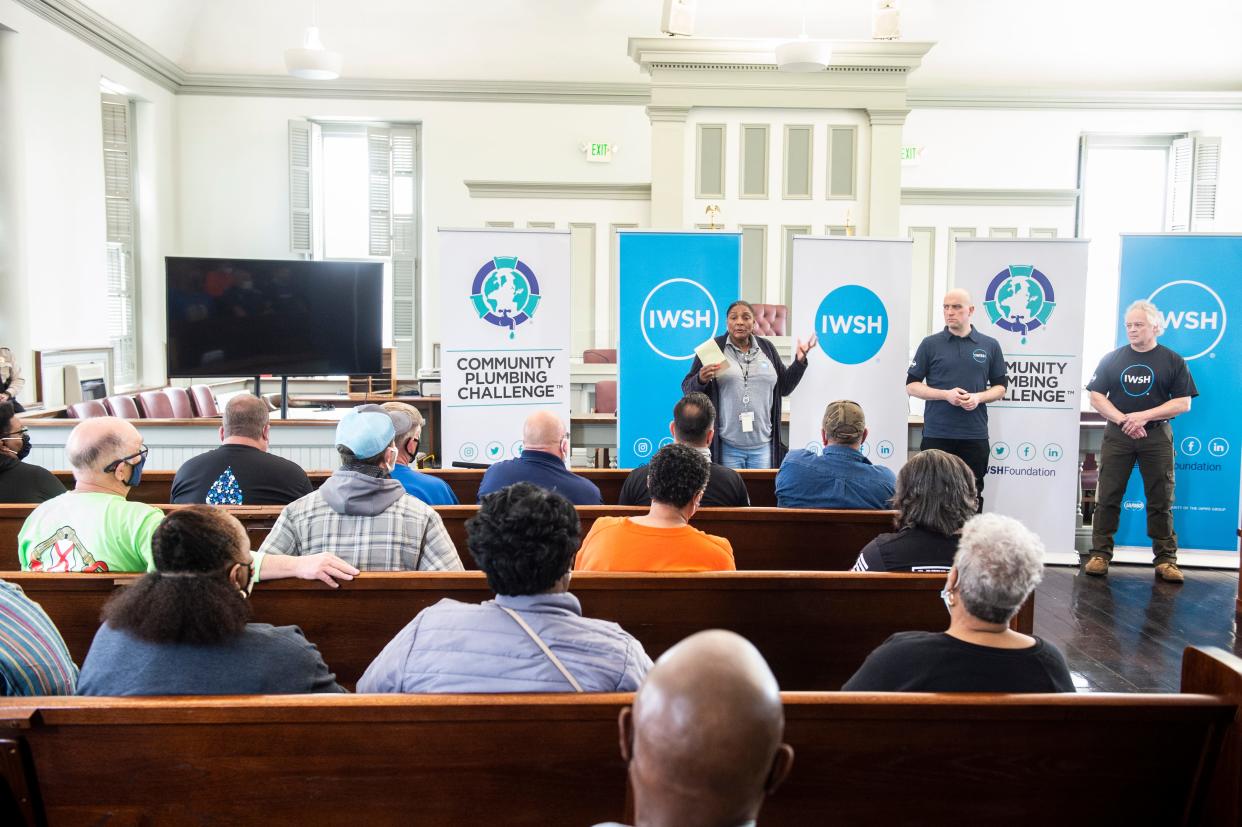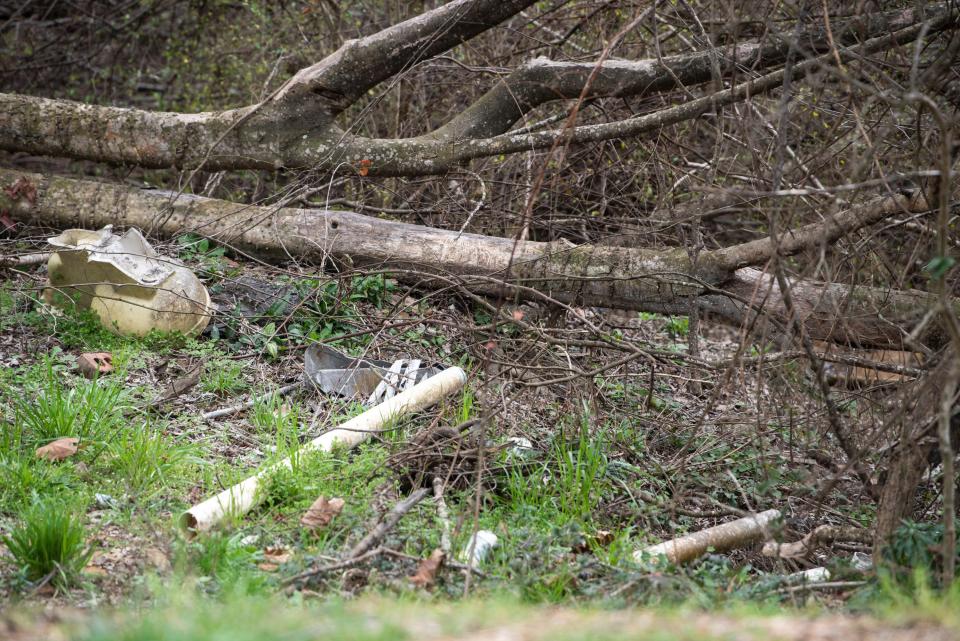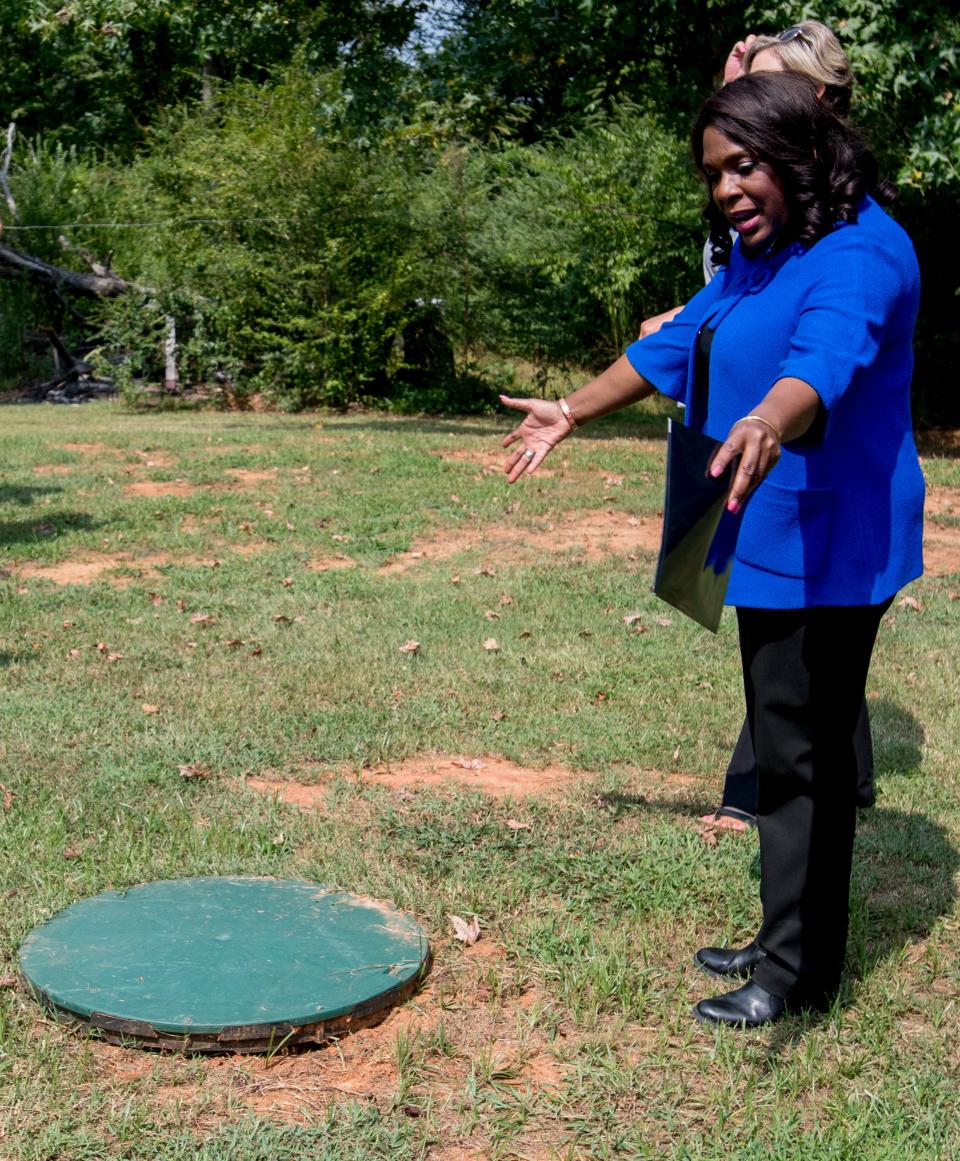High school students get involved in solving Lowndes County sewage woes

More funding, more interest and more help.
That’s what the Black Belt Unincorporated Wastewater Program has been looking for since its official founding last year, and in recent months, the group working to install innovative wastewater systems in Lowndes County has seen success in all three areas.
BBUWP treasurer and environmental advisor Sherry Bradley said the group received a $2.1 million grant from the Alabama Department of Environmental Management. That money comes from the $225 million in American Rescue Plact Act funds that the state designated for improving Alabamians’ water and sewer services earlier this year.
“Every Alabamian should have access to clean drinking water and safe, sanitary disposal of wastewater,” Gov. Kay Ivey said at the time. “Not only will these projects improve access to clean drinking water and sanitary sewers, they will also generate economic activity and create jobs by pumping millions of dollars into communities, many of which are rural and far from large industries and big employers.”
While any low-income homeowners in rural Lowndes County can qualify for help from the BBUWP, Fort Deposit will be the specific beneficiary of the $2.1 million. At a community meeting in Hayneville this week, Bradley said the reason for narrowing in on Fort Deposit was because county-wide outreach was less effective.
“Around here, the applications did spread, but lots of people didn’t turn them in. Well, guess what? When we gave everybody a deadline, they turned them in like water,” Bradley said. “The way they were coming in before, it was killing us.”

By moving from community to community, Bradley said it’s easier to manage the influx of applications and make sure each homeowner has the required paperwork — including proof of home ownership, a previous water bill, proof of income and a valid driver’s license.
“Once we put in enough systems in Lowndes County, we will be moving to other Black Belt counties,” Bradley said. “We don’t want to stay where we are. We want to move forward.”
Will casinos close?Lowndes County leaders brace for 'devastating blow' if casinos close
She expects to receive more ARPA funding in the future from the Alabama Department of Environmental Management, and with that, she said the BBUWP will build capacity throughout the region. Bradley has already lined up community representatives for Wilcox and Dallas counties.
Bradley also thanked U.S. Rep. Terri Sewell for her involvement in getting ARPA funding directed toward the cause.
"She is the main reason we're getting all of this funding," Bradley said.

As the program continues to expand, Bradley and her counterpart BBUWP president Perman Hardy are always looking for new avenues of support. Under the supervision of International Water, Sanitation and Hygiene Foundation program director Jed Scheurmann, they have been able to train local high school students to perform home assessment inspections for the program. These assessments are necessary before the BBUWP experts can determine what kind of wastewater management system would best fit each home.
“Highly qualified people are what's necessary to do this,” Scheurmann said. “I'm proud as a peacock of these four young men. You've got some great young community leaders here.”
Demarcus McCord, Benjamin White, Jr., Deandre Mitchell and Devin Lewis all spent the last week working with Scheurmann and performing home assessments.
“Ms. Perman, she’s been working real hard to help y’all, and I’m blessed to be a part of this program for our community,” McCord said. “Nobody wants to see our community. They don’t want to see us living. They just ride through. If people were to just turn down the street, you would see how they need help.”
McCord, who is BBUWP president Hardy’s nephew, said his involvement has been eye-opening, and it showed him the direct impact he can have on other’s lives.
“It may not even seem wrong to them,” McCord said. “There are people you could talk to everyday, and you won’t even know they’ve got something going wrong unless you’re in their home. It was like a learning experience. If you see what needs to be done, why not do it?”
Individuals who would like to be considered for a new wastewater disposal system from the BBUWP can request an application by emailing bbuwp@yahoo.com or calling 334-300-6619.
Hadley Hitson covers the rural South for the Montgomery Advertiser and Report for America. She can be reached at hhitson@gannett.com. To support her work, subscribe to the Advertiser or donate to Report for America.
This article originally appeared on Montgomery Advertiser: Lowndes sewage solution gets new volunteers, $2.1 million in ARPA funds

